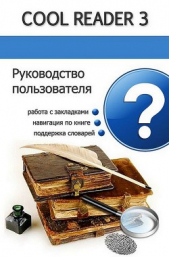Словарь американских идиом: 8000 единиц

Словарь американских идиом: 8000 единиц читать книгу онлайн
Это обновленное и дополненное издание, содержащее более 8000 идиоматическихслов и выражений, причем каждое из которых снабжено грамматическим объяснениеми практическим примером. Словарь содержит лексемные идиомы, фразеологическиеединицы и поговорки, имеющие особенное значение. В нем приведены наиболееупотребительные выражения только американского английского языка. Этот словарь?—?идеальное пособие для студентов, часто разъезжающих бизнесменов и простопутешественников.
Внимание! Книга может содержать контент только для совершеннолетних. Для несовершеннолетних чтение данного контента СТРОГО ЗАПРЕЩЕНО! Если в книге присутствует наличие пропаганды ЛГБТ и другого, запрещенного контента - просьба написать на почту [email protected] для удаления материала
[whether one is coming or going] See: KNOW IF ONE IS COMING OR GOING.
[whether --- or] or [whether --- or whether] 1. {coord. conj.} Used to introduce an indirect question. •/You must decide whether you should go or stay./ •/I don’t know whether Jack or Bill is a better player./ Compare: EITHER --- OR(2). Used to show a choice of things, or that different things are possible. •/Whether the bicycle was blue or red, it didn’t matter to Frank./
[which] See: GAME AT WHICH TWO CAN PLAY.
[which is which]{n. phr.} Which is one person or thing and which is the other; one from another; what the difference is between different ones; what the name of each one is. •/Joe’s coat and mine are so nearly alike that I can’t tell which is which./ •/Mr. Hadley hadn’t seen his friend’s daughters in such a long time that he couldn’t remember which was which./ Compare: WHAT’S WHAT, WHO’S WHO.
[which was which] See: WHICH is WHICH.
[while] See: AFTER A WHILE or IN A WHILE, ALL THE TIME(1), EVERY NOW AND THEN or EVERY ONCE IN A WHILE, ONCE IN A WHILE.
[while ago]{adv.} At a time several minutes in the past; a few minutes ago; a short time ago. — Used with "a". •/I laid mv glasses on this table a while ago; and now they’re gone./ •/A while ago, Mary was tired and wanted to go home; now she’s dancing with Bob as if she could dance all night./ Compare: JUST NOW(2).
[while away]{v.} To make time go by pleasantly or without being bored; pass or spend. •/We whiled away the time that we were waiting by talking and playing cards./ •/We whiled away the summer swimming and fishing./
[while back]{adv.} At a time several weeks or months in the past. — Used with "a". •/We had a good rain a while back, but we need more now./ •/Grandfather is well now, but a while back he was in the hospital for three weeks./ See: CRACK THE WHIP.
[whip hand] See: UPPER HAND.
[whipping boy]{n. phr.} The person who gets punished for someone else’s mistake. •/"I used to be the whipping boy during my early days at the company," he musingly remembered./
[whip up]{v.}, {informal} 1. To make or do quickly or easily. •/Mary whipped up a lunch for the picnic./ •/The reporter whipped up a story about the fire for his paper./ 2. To make active; stir to action; excite. •/The girls are trying to whip up interest for a dance Saturday night./ Compare: STIR UP, WHOOP IT UP(2).
[whispering campaign]{n.} The spreading of false rumors, or saying bad things, about a person or group, especially in politics or public life. •/A bad man has started a whispering campaign against the mayor, saying that he isn’t honest./
[whistle] See: BLOW THE WHISTLE ON, WET ONE’S WHISTLE.
[whistle a different tune] See: SING A DIFFERENT TUNE.
[whistle for]{v.}, {informal} To try to get (something) but fail; look for (something) that will not come. •/Mary didn’t even thank us for helping her, so the next time she needs help she can whistle for it./
[whistle in the dark]{v. phr.}, {informal} To try to stay brave and forget your fear. •/Tom said he could fight the bully with one hand, but we knew that he was just whistling in the dark./ (From the fact that people sometimes whistle when walking in a dark, scary place to keep up their courage.)
[whistle-stop]{n.} A small town where the trains only stop on a special signal. •/President Truman made excellent use of the whistle-stop during his 1948 campaign for the presidency./
[white] See: BLACK AND WHITE, IN BLACK AND WHITE.
[white around the gills] See: GREEN AROUND THE GILLS.
[white-collar workers]{n. phr.} Workers employed in offices and at desks as opposed to those who work as manual workers; the middle class. •/It is a well-known fact that white-collar workers are less well organized than unionized manual workers./ Contrast BLUE-COLLAR WORKERS.
[white elephant]{n. phr.} Unwanted property, such as real estate, that is hard to sell. •/That big house of theirs on the corner sure is a white elephant./
[white lie]{n. phr.} An innocent social excuse. •/I am too busy to go to their house for dinner tonight. I will call them and tell a little white lie about having the flu./
[white sale]{n.} The selling, especially at lower prices, of goods or clothing usually made of white cloth. •/Mother always buys many things at the January white sale to save money./
[whitewash]{n.}, {informal} A soothing official report that attempts to tranquilize the public. •/Some people believe that the Warren Commission’s report on the Kennedy assassination was a whitewash./
[whitewash something]{v.}, {informal} To explain a major, national scandal in soothing official terms so as to assure the public that things are under control and there is no need to panic. •/Many people in the United States believe that President Kennedy’s assassination was whitewashed by the Warren Commission./ See: WHITEWASH.
[whiz] See: GEE WHIZ.
[who] See: SAYS WHO.
[whodunit]{n.} A detective story; a murder story; a thriller. •/Agatha Christie was a true master of the whodunit./
[who is who] See: WHO’S WHO.
[who laughs last laughs best] See: HE LAUGHS BEST WHO LAUGHS LAST.
[whole] See: ALL THE WAY or THE WHOLE WAY, GO THE WHOLE HOG, ON THE WHOLE, WITH A WHOLE SKIN or IN A WHOLE SKIN.
[whole cheese]{slang} or {informal} [whole show] {n.}, {informal} The only important person; big boss. •/Joe thought he was the whole cheese in the game because he owned the ball./ •/You’re not the whole show just because you got all A’s./ Compare: BIG CHEESE.
[whole hog] See: GO THE WHOLE HOG.
[whole lot] See: A LOT.
[whole show] See: WHOLE CHEESE.
[whoop it up]{v. phr.}, {slang} 1. To make a loud noise; have a noisy celebration; enjoy yourself noisily. •/The team whooped it up after winning the game./ 2. To praise something enthusiastically; encourage enthusiasm or support. — Often used with "for". •/Father wanted to go to the country, but the children whooped it up for the beach./
[who’s who] or [who is who] {informal} 1. Who this one is and who that one is; who the different ones in a group of people are or what their names or positions are. •/It is hard to tell who is who in the parade because everyone in the band looks alike./ •/It took the new teacher a few days to remember who was who in the class./ Compare: WHICH IS WHICH. 2. Who the important people are. •/John didn’t recognize the champion on television. He doesn’t know who is who in boxing./ •/After about a year, Mr. Thompson had lived in this town long enough to know who was who./ Compare: WHAT’S WHAT.
[why and wherefore]{n.} The answer to a question or problem. Usually used in the plural. •/Father told him not to always ask the whys and wherefores when he was told to do something./
[wide] See: FAR AND WIDE, GIVE A WIDE BERTH.
[wide-eyed] See: ROUND-EYED.
[wide of the mark]{adv.} or {adj. phr.} 1. Far from the target or the thing aimed at. •/James threw a stone at the cat but it went wide of the mark./ 2. Far from the truth; incorrect. •/You were wide of the mark when you said I did it, because Bill did it./ Contrast: HIT THE BULL’S-EYE, HIT THE NAIL ON THE HEAD.

























